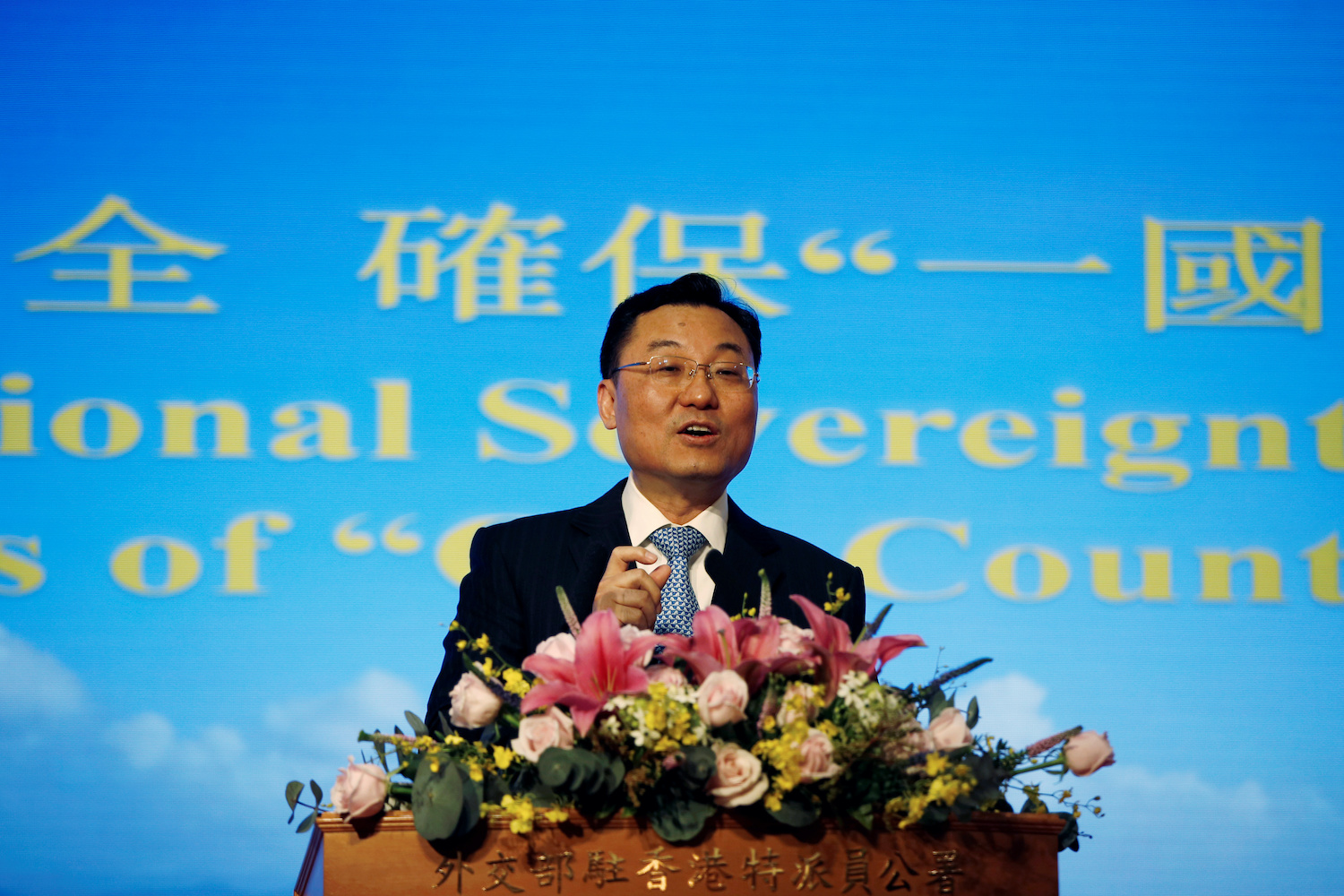• US given list of requests to ‘correct past actions’
• Xie Feng says US mobilised government, society to suppress China
A top Chinese diplomat took a confrontational tone in rare high-level talks with the United States on Monday, accusing it of creating an “imaginary enemy” to divert attention from its domestic problems and suppress China.
Amid worsening relations between the world’s two largest economies, Deputy Secretary of State Wendy Sherman, the second-ranked US diplomat, arrived on Sunday for the face-to-face meetings in the northern city of Tianjin.
“The United States wants to reignite the sense of national purpose by establishing China as an ‘imaginary enemy’,” state television quoted Vice Foreign Minister Xie Feng as saying in a report on Monday morning’s session, even as talks were underway. “As if once China’s development is suppressed, US domestic and external problems will be resolved, and America will be great again, and America’s hegemony can be continued.”
The United States had mobilised its government and society to suppress China, he added.
Later, Sherman met with State Councillor and Foreign Minister Wang Yi. Senior US officials said after that Sherman was “forceful” on issues including China’s alleged cyber-hacking and repression in Hong Kong during candid but “professional” talks with Beijing officials.
“The Deputy Secretary was very forceful in making the Chinese understand the factual information we had to support what we were talking about, whether it be human rights or violations of pledges made by China such as on Hong Kong’s high degree of autonomy,” US officials said.
Sherman’s China visit was added late to an Asian itinerary that included stops in Japan, South Korea and Mongolia amid wrangling over protocol between Beijing and Washington.
On Saturday, Wang had warned that China would not accept the United States taking a “superior” position in the relationship, a day after China unveiled sanctions on former US Commerce Secretary Wilbur Ross and others.
Sherman’s expected position during the talks, as outlined by senior US officials, would be that the United States welcomed competition with Beijing but would insist on a level playing field and “guardrails” to avoid conflicts. The US government and lawmakers have been critical of China’s policy in Hong Kong and Xinjiang, with the US Senate having passed a bill this month to ban imports from the far western region, citing forced labour concerns.
Last Wednesday, State Department spokesman Ned Price said that Sherman would be travelling to China “from a position of strength.” On Monday, Xie told Chinese media that he presented a list of requests for the United States to “correct” its past actions on China, such as removing sanctions on officials.
Monday’s talks came amid frayed relations between Beijing and Washington that have worsened in the months since an initial diplomatic meeting in March in Anchorage, the first under US President Joe Biden’s administration. At the Alaska meeting, Chinese officials, including Wang, railed against the state of US democracy, while US officials accused the Chinese side of grandstanding.
Monday’s meeting was held amid stringent Chinese Covid-19 measures, which have meant that foreign officials have met Chinese counterparts outside Beijing, the capital. Foreign media were kept at a distance from the site of the talks, but Chinese media were permitted on the premises.
Austin heads to SE Asia
Meanwhile, US Defence Secretary Lloyd Austin will become the first member of President Biden’s cabinet to visit Southeast Asia this week, seeking to emphasise the importance Washington places on fortifying ties in the region while pushing back against China.
The United States has put countering China at the heart of its national security policy for years and the Biden administration has called rivalry with Beijing “the biggest geopolitical test” of this century.
Six months into his presidency, however, Southeast Asian countries are still looking for details of Biden’s strategy as well as his specific plans for economic, trade and military engagement with the Indo-Pacific.
“You’ll hear me talk a lot about partnerships and the value of partnerships,” Austin told reporters enroute to Alaska. “My goal is to strengthen relationships.”
In a keynote speech in Singapore on Tuesday and meetings in Vietnam and the Philippines, Austin will call out aggressive Chinese behavior in the South China Sea and stress the importance of keeping the wider region free and open.
His trip follows Sherman’s visit to China and coincides with a trip by Secretary of State Antony Blinken to India, another important partner in US efforts to counter Beijing.
Experts say Austin’s presence is important to make clear that Southeast Asia is a vital component in Biden’s efforts. An Asian diplomat, speaking on the condition of anonymity, said it appeared the Biden administration was now directing its focus more firmly on Asia after addressing other global issues, such as relations with Russia and Europe. Austin had been due to visit the region in June, but was forced to postpone due to Covid-19 restrictions in Singapore.
Reporting by Reuters and AFP.
This report was updated with further details on July 26.





















